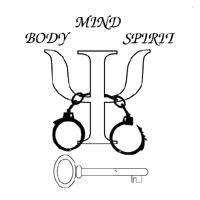Emotion:
1. Why would an inappropriate emotion be triggered?
2. Can we erase an emotional trigger completely?
3. Can we change our emotional reactions so that we become amused or
contemptuous rather than angry?
4. Can we at least weaken angers power so we don’t react inappropriately?
These are the questions that I am going to be addressing in the next few weeks as I continue my research on Psychology In Trouble.
Friday, February 5, 2010
Subscribe to:
Post Comments (Atom)







According to Archeologists it is estimated that humans, Homo sapiens have been on the Earth for about 200,000 years. Homo Sapien is Latin for the term, "wise human." What sets us apart from other creatures on this planet is we are all a member of species of bipedal primates in the family Hominidae. In other words, we have a highly developed brain, bipedal gate, and opposable thumbs. With these points made, I find the quest to understand our highly developed brains fascinating. This brings me to my interest in emotion.
ReplyDeletePractically speaking, there are three layers to the human brain. The first and most primitive is the reptilian brain. We share this brain with other reptiles on this planet. In our reptilian years of development, it was this brain that kept the species alive. Within this brain, there are no capabilities for abstract reasoning. Rather, this primitive part of our brain is automatic in terms of setting the stage for fight-or-flight. Then, as times changed, we incrementally adapted to our worlds. We needed something a bit more creative and self-regulating than mere survival instincts. Crossing over from reptilian to mammalian brain, or the limbic brain, we developed the capability of emotion. To make this point, reptiles like snakes do not come across as enthusiastic, however other mammals like dogs and cats do get enthusiastic. What is interesting about both of these brains, both can be stimulated by words and yet neither can communicate. Communication necessitates a sense of self, or a more sophisticated brain. This third brain is the neocortex which constitutes the capabilities of all of our higher ordering.
Now, with the dynamics to these three brains, it is my position that emotion is instinctual and serves one purpose and one purpose only and that is motivational. Feelings are not instinctual, rather are shaped by the capabilities of our higher or neocortex brain. In effect, feelings do not exist. Rather, feelings are thoughts about what is being experienced emotionally. This makes perfect sense considering the development and utility to the three brains, reptilian, mammalian, and neocortex.
Several years ago, I had a client I will call Tim. Tim was an engineer who problem-solved everything to include his relationships. I recall Tim sharing with me that he had a thirst to know how things operate. As a child, he would take apart his mechanical toys to discover how they operated and then put them back together. Now, for obvious reason, this cannot be done with the human brain in trying to figure out what is what. For that matter, no one on this planet created the human brain, and as cognitive neuroscience has show, much of it is a best-guess-game. Well, as based upon current cognitive neuroscience, I do not adhere to much of its best-guess-game. What I do is theorize upon what I have personally expereinced, observed, and studied over the past twenty years. Can anyone prove me wrong?
ReplyDeleteMatter of Perspective:
ReplyDeleteInspirational brain
Regulatory brain
Autoappraisal brain